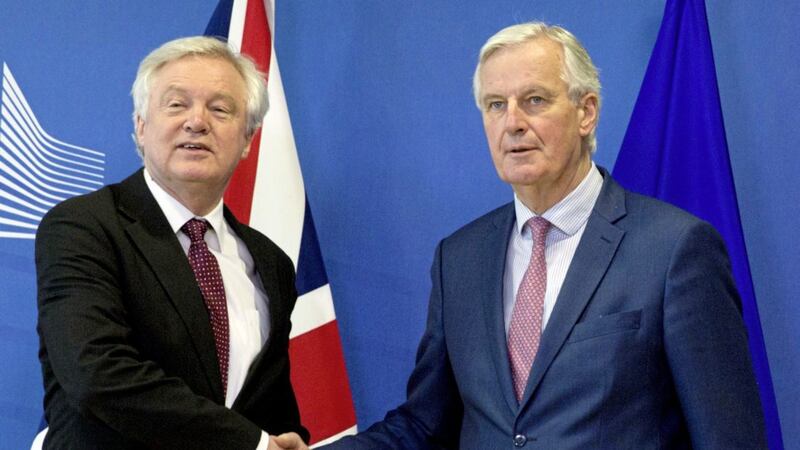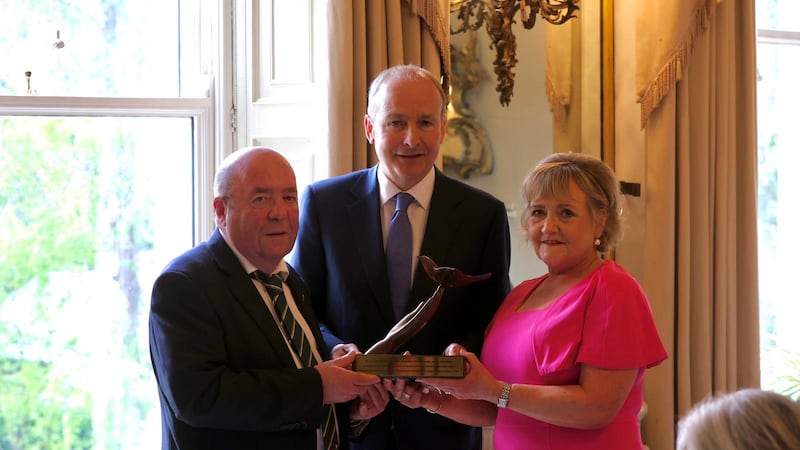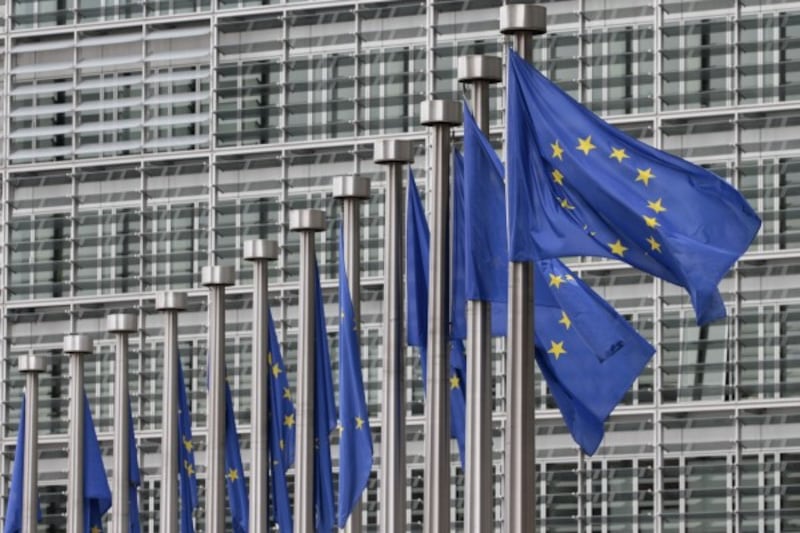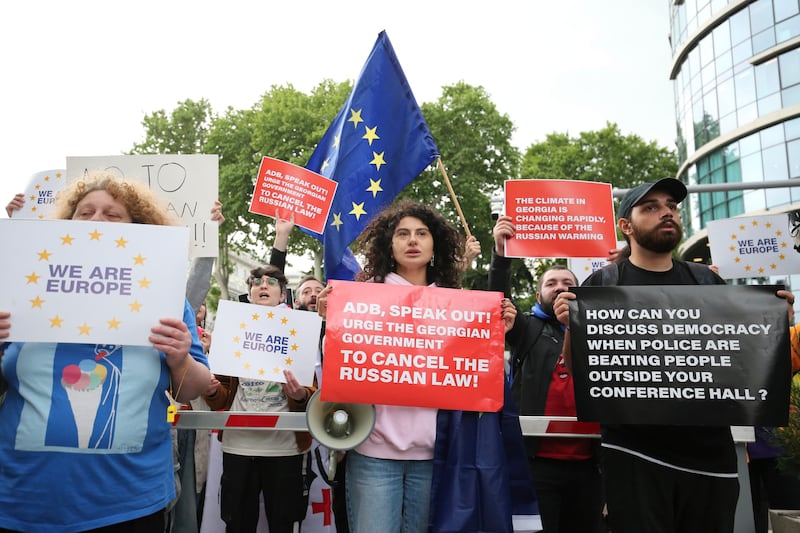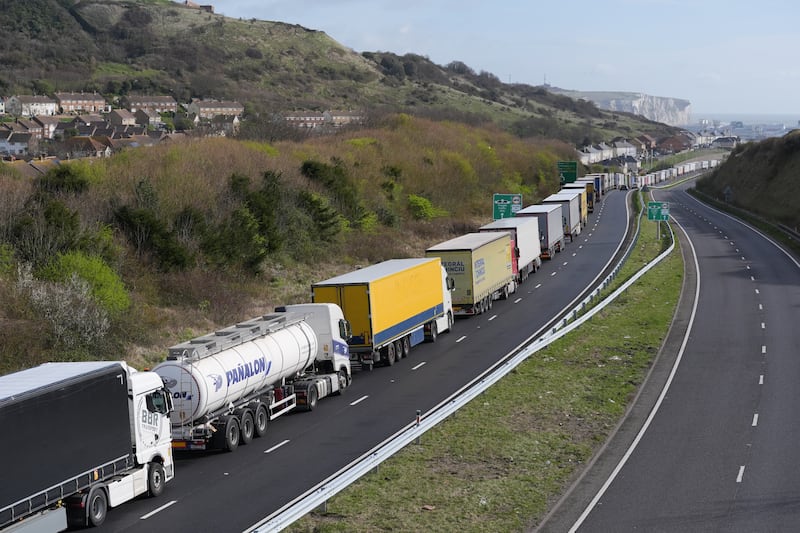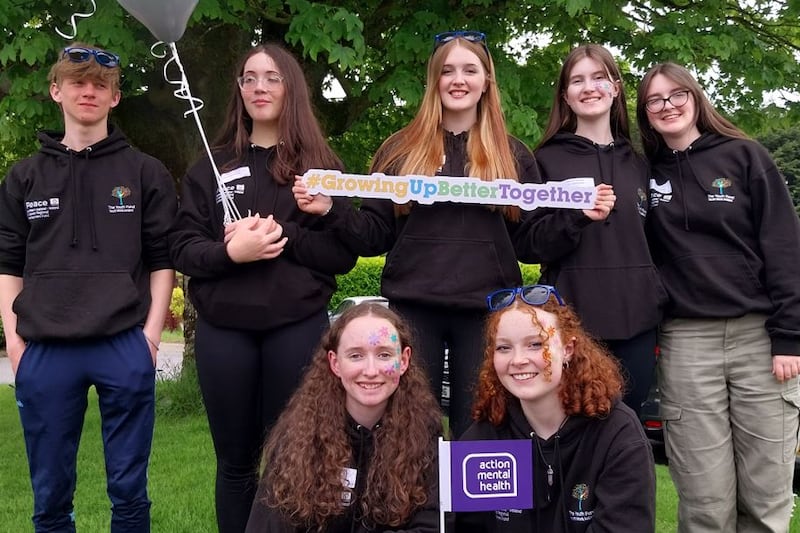BREXIT negotiators have been warned against "a fudge on Northern Ireland" as the latest stage of talks still showed no agreement on the border issue.
A "backstop" position envisaging the north effectively remaining within the EU single market and customs union if no other solution is found was included in a draft withdrawal deal yesterday.
But it also says the UK and EU have not reached agreement on the "right operational approach" in order to avoid a hard border.
It will be the subject of intense negotiation in the months leading up to October's final deadline for a Brexit deal, with talks focusing solely on Irish issues due to begin next week.
The latest text includes sections marked in green (signifying "formal agreement"); yellow ("political agreement with details to be clarified"); and white (EU proposals on which discussions are continuing and there has been no agreement).
The 'draft protocol on Ireland/Northern Ireland', highlighted in yellow, describes a desire to "create a common regulatory area on the island of Ireland".
Another section, in white, says Northern Ireland would continue to be considered "part of the customs territory of the Union" after Brexit – effectively creating a customs border along the Irish Sea.
Last month British prime minister Theresa May told MPs the EU backstop proposals for the border would "threaten the constitutional integrity of the UK by creating a customs and regulatory border down the Irish Sea, and no UK prime minister could ever agree to it".
Brexit secretary David Davis yesterday described the agreement – which includes a transition deal and allows talks on the future trade relationship to be triggered – as a "significant step".
He said he agreed with EU chief negotiator Michel Barnier on the need to include legal text detailing a "backstop" solution on the border, but it must be acceptable to both sides.
He added that it remained the UK's intention to achieve a partnership that was so close it did not need Northern Ireland-specific measures, and pledged to engage in detail on all scenarios set out in a joint report in December between the two sides.
Mr Barnier also cautioned that some issues including the Irish border remained to be settled.
The agreement must be approved by EU leaders including taoiseach Leo Varadkar at a European Council summit on Thursday and Friday this week.
Tánaiste Simon Coveney said on Twitter following a meeting with Mr Barnier that progress on Irish issues "remains a key priority for both negotiating teams".
A spokesman for Taoiseach Leo Varadkar said Britain's commitment to a backstop to avoid a hard border is legally firm and will apply until something better is agreed.
But Fianna Fáil TD Stephen Donnelly, the party's Brexit spokesperson, said the deal "looks like a fudge on Northern Ireland to enable talks to move onto areas such as trade".
"The idea of a hard border is deeply worrying and concerning to the people of Ireland, north and south. A backstop to avoid it ever being implemented on our island needs absolute certainty and support from both sides," he said.
"The old adage that 'nothing is agreed until everything is agreed' has never been so true. Based on the response before Christmas from the DUP and the Tory hard Brexiteers, I am wary of any agreement that relies exclusively on a hard border backstop provision."
Sinn Féin MEP Martina Anderson described the deal as "confirmation that the British government is accepting the agreements made, including the backstop option".
She added: "So while progress has been made more work needs to be done to ensure that there is no diminution of rights for citizens in the north."
SDLP leader Colum Eastwood said he hoped the deal was a "sign that realism and pragmatism is finally infiltrating this British government".
"In the continued absence of that economic common sense from the British government, the backstop agreement will inevitably come into effect," he said.
However, the DUP said there has been no agreement on how any backstop arrangement would work.
"The EU's proposed draft legal text recently published has been rejected by the prime minister in the House of Commons and we agree that it is totally unacceptable," it said.
"We will continue to work with the government on these matters and will be guided by the principle that there can be no internal border within the United Kingdom as we leave the European Union."
Ulster Unionist MEP Jim Nicholson also said any backstop separating Northern Ireland from the rest of the UK "was unacceptable in December, it is unacceptable now and it will be unacceptable in the future".
Alliance deputy leader Stephen Farry said "significant differences and questions remain".
"In many respects, the parties have only agreed to reach an agreement on this matter," he said.
